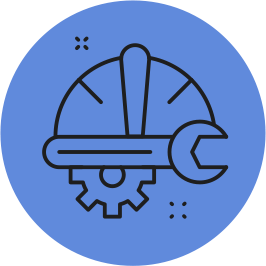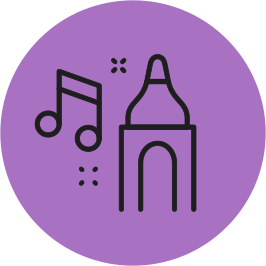What Are Interest Areas?
The first step to finding a rewarding career is knowing what type of work you like to do. The BigFuture Career Quiz can help! Your answers to the quiz questions tell us a lot about the activities you enjoy based on a set of six categories, or interest areas. These interest areas are derived from the Holland framework, a system widely used by the U.S. government and academic institutions to help students and other job seekers.
The interest areas are: realistic, investigative, artistic, social, enterprising, and conventional, or RIASEC. Each interest area corresponds to a group of careers that are usually a good match for someone with those interests. A person with artistic interests, for example, might enjoy working as a costume designer or studio musician, while a person with social interests might like being a teacher or coach.
Because most careers involve more than one type of work, the customized list of careers we’ve created for you is based on a combination of your top three interest areas.
These are the RIASEC interest areas:

Realistic
People with realistic interests like practical, hands-on work, such as designing or building something, repairing equipment, physical activity, or working outdoors.
Realistic career fields include engineering, mechanics, construction, woodworking, agriculture, engineering, mechanics, athletics, security, and transportation.

Investigative
People with investigative interests like searching for facts and solving problems. They enjoy work that involves studying or researching, such as in a lab.
Investigative career fields include sciences, math, information technology, and health care.

Artistic
People with artistic interests like expressing themselves through creative, original work. They enjoy making visual art, performing, writing or designing something.
Artistic career fields include visual arts, music, media, design, and culinary arts.

Social
People with social interests like working with others to help them learn and grow. They enjoy teaching, giving advice, or physically caring for others.
Social career fields include education, therapy, social services, health care, and religion.

Enterprising
People with enterprising interests like starting and managing business projects. They enjoy leading or advising people, selling or marketing products, and conducting negotiations.
Enterprising career fields include business, politics, law, finance, public speaking, administration, and sales.

Conventional
People with conventional interests enjoy work that involves organizing information, often in an office setting. They like projects that follow set procedures and regulations.
Conventional career fields include accounting, information technology, finance, and human resources.
Matching Interest Areas to Career Profiles
The BigFuture Career Quiz provides a list of 30 potential careers based on how your preferences align to what is known about different occupations. The assessment will match your interests to the careers that best represent them.
Work values assessments
You should also assess your work values when choosing a career. When your values align with your job, you’re more likely to be happy and successful. One way to assess your values is to write down what’s important to you and rank these values so you see what matters most. Once you’ve identified your values, you can see how they connect to work by researching career profiles, speaking to professionals, and getting firsthand work experience.
Skills assessments
A skills assessment helps you connect your talents, skills, and aptitudes to different careers. Skills assessments often measure specific skills, such as whether you can write computer code. They also measure general aptitudes, such as communication skills and athletic ability. The SAT Suite of Assessments measures quantitative or literacy skills, which have been mapped to every career listed in O*NET. Once you have an inventory of your own skills, either through an assessment or a simple listing of what you know, you can align these skills to different jobs by viewing Knowledge, Skills, and Abilities on the career profile in BigFuture Career Search.